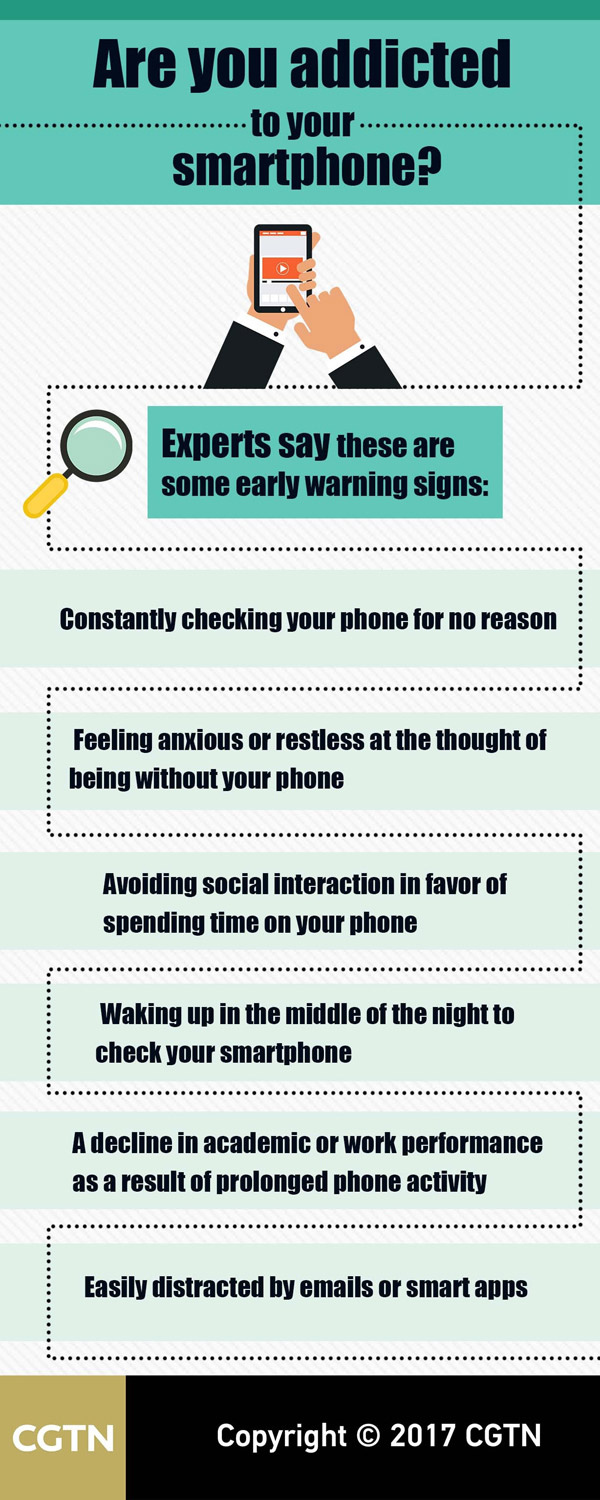 |
|
[Photo/CGTN] |
Addictive technology
According to a 2016 study by the University of Pittsburgh School of Medicine, the more time young people spend on social media, the more likely they are to be depressed.
What really caused concern for Rosenstein was research that showed the psychological effects on people who swipe or tap their smartphone more than 2,000 times a day.
“This increasing technological distractedness is a bug in our collective programming from which we must immediately collectively control – break,” he said, “Wake up from the infinite dopamine loop.”
There is growing concern that as well as being addictive, technology is contributing toward so-called “continuous partial attention”, severely limiting people’s ability to focus, and possibly lowering IQ.
Researchers at the University of Chicago found that the mere presence of smartphones damages cognitive capacity, even when the device is turned off.
“It’s critical we address these problems now, as we may be the last generation that can remember life before smartphones,” Rosenstein said.
Smartphone and social media users across the globe that CGTN spoke with admit there is a problem, but are not ready to put down their devices.
“My smartphone never leaves my side,” Erin Wigger said. “It’s my calendar, clock, connection to my friends and family.”
Wigger, who lives in Seattle, Washington, said, “I work in social media so I need to keep up on platforms because of my job. I check almost every major platform several times a day.”
While sentiments on social media and smartphone use vary from person to person, it is a global phenomenon that is expected to continue, especially in Asia.
Luxury handbag maker, Demi Lo, who splits her time between Hong Kong and Vancouver in Canada, was quick to admit she has a problem.
“I feel I am addicted to my phone,” she said. “I am an active observer and check some form of social media once every two hours probably.”